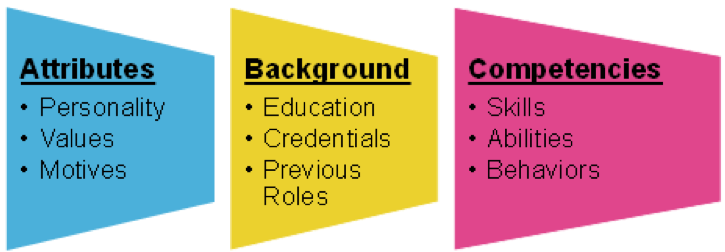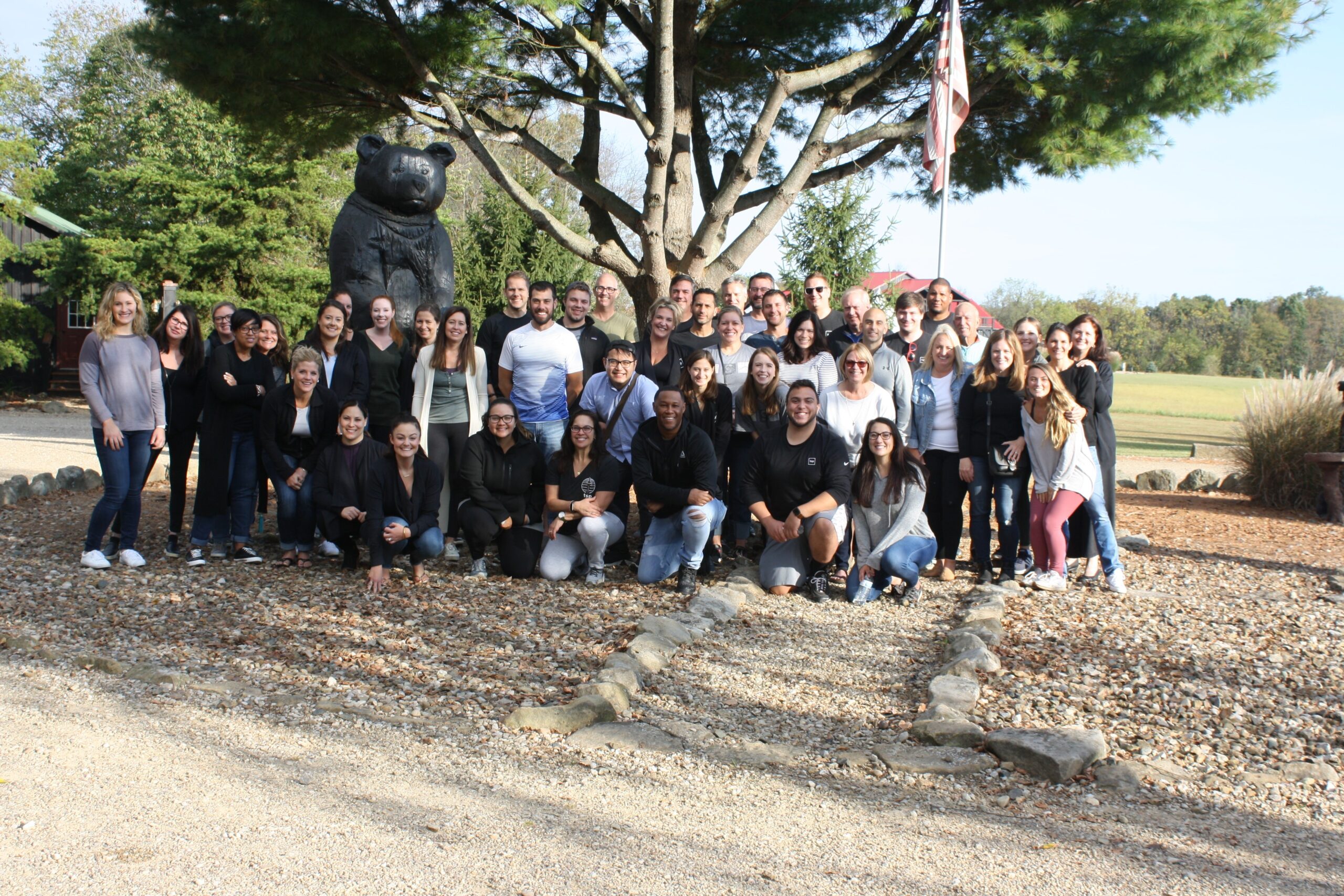The ABCs of Success
The first post of this series introduced a simple and comprehensive model for making great talent decisions – “The ABCs of Success”. The second post explained why great talent decisions must take into account a candidate’s attributes – attributes tend to be consistent over time, and they influence job performance.
Today’s post breaks down the “B” – Background.
A candidate’s background is anything in their history – previous roles, education, credentials, and so on.
Assessing background includes some basic components like reviewing the resume, conducting background checks, and talking to references. While these activities are important parts of the process, they have significant limitations:
Assessing candidates’ competencies is critical to making great talent decisions. The pace of change in organizations is rapidly accelerating, creating job contexts that look different today than they did yesterday. As a result, what someone has done is not the only predictor of what they can do. This means that competencies should be assessed against what will be needed for success in the future, based on things like the strategic direction of the organization and foreseen challenges facing the group or function.
- A resume is like the description of a house on Zillow – it only includes the highlights.
- Background and reference checks are like box-checking exercises for deal breakers – they usually only look for the “red flags” that would disqualify a candidate.
We need to know more than just the highlights of someone’s career and whether they have any red flags in their history, so interviews are used to dig deeper into what a candidate has done in their previous roles.
But many interviews still do not provide meaningful information because interviewers rely on common, yet ineffective, methods to assess background, including:
- Walk me through your resume. If resume only includes highlights, this question will only yield more details about the highlights
- What’s not on your resume? A noble attempt by interviewers to dig deeper, but unfortunately most candidates will only share another highlight that didn’t quite make their list of top highlights.
- Tell me about a time when… Many hiring managers and talent acquisition professionals place a lot of value in this kind of question (often called behavioral-based interviewing). While it’s more effective than the above two methods, it still has serious limitations. Any candidate can prepare scripted answers based on common “tell me about a time when” questions that they’ve been asked in just about every interview (i.e., “tell me about a time when you influenced without authority”). As a result, a well-spoken candidate who has well-rehearsed answers to cookie-cutter questions is often mistaken for a well-qualified candidate who has demonstrated a history of high performance. If behavioral based interviewing is going to be effective, we have to ask the questions in a more impactful way – more on that shortly.
So, how can we conduct more effective interviews?
Here are two tips to dig deeper into a candidate’s background and get meaningful insight into who they are:
Ask the candidate to look “outside in”
In addition to asking a candidate describe themselves from their own perspective, ask them to describe themselves from others’ perspectives. This can be effective because most people have gotten feedback in their careers, and also because it can yield clearer answers. For example, if you are asked a question like “what is your leadership style”, it probably brings to mind some ideas, theories, and buzzwords. However, if you are asked “how would your previous team describe your leadership style”, it probably brings to mind more specific, concrete examples. And in the interview world, specific and concrete trumps ideas and theories – for both the interviewer and the interviewee.
Ask the candidate to describe times when they were “most” or “least” of some quality
This is how to make behavioral based interviewing more effective. Instead of simply asking the candidate to share a time when they demonstrated some quality, ask them to share the time when they demonstrated either the most or least amount of some quality. This can be effective because it raises the bar for the candidate – it’s one thing to share a time when you were collaborative, but another to share the time when you were the most collaborative you’ve ever been. A few specific examples you can use include:
- “Tell me about the time in your career when you were the most radical you can remember being” – ask this if you want to know whether they’re a true leader and agent of change instead of someone who simply tries to manage change.
- “What is the one career accomplishment you feel most proud of?” – ask this instead of “walk me through your resume” because it will reveal whether the candidate’s version of “top notch” is aligned with yours.
- “Tell me about the time in your career when you were the least engaged at work” – ask this in order to identify what drains the candidate’s energy and cross-reference it with what the typical conditions of the new role will be.
At TSP, our team of Industrial/Organizational Psychologists helps organizations make great talent decisions by leveraging best-in-class assessments and creating customized interview guides. We can help you take your talent to the next level so contact us to learn more!
In our next post, we’ll explore the third and final part of our ABC model, “Competencies”, so be sure to check back soon!





